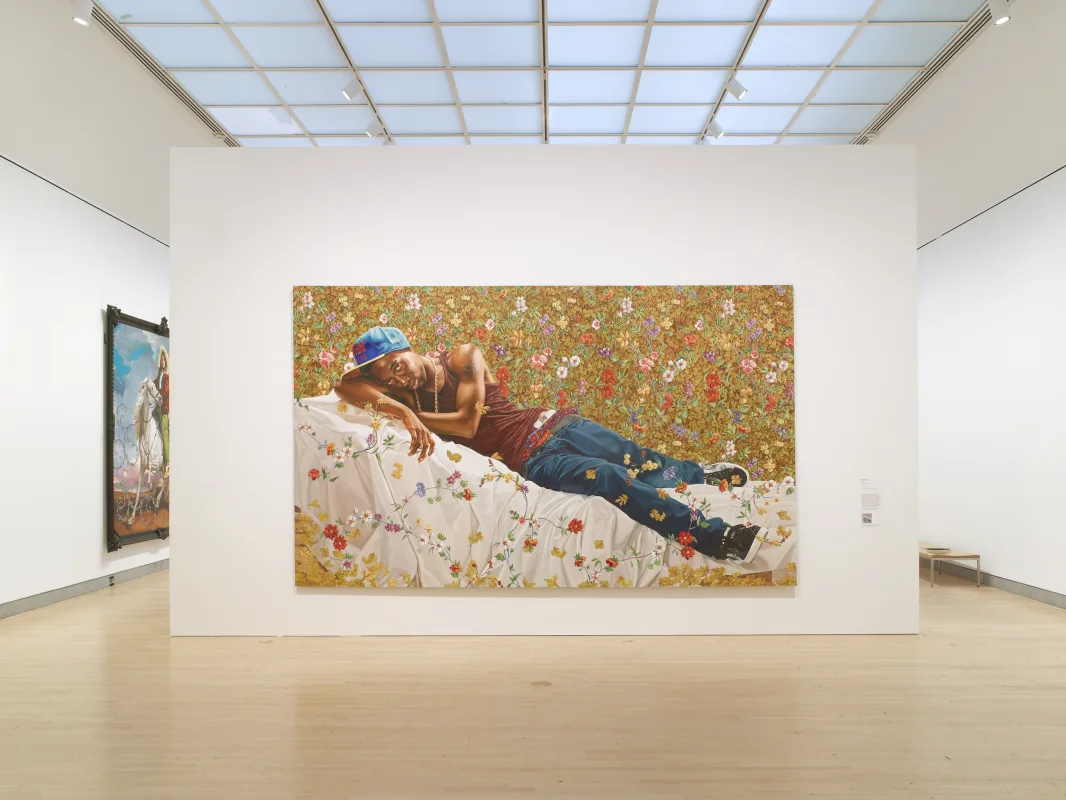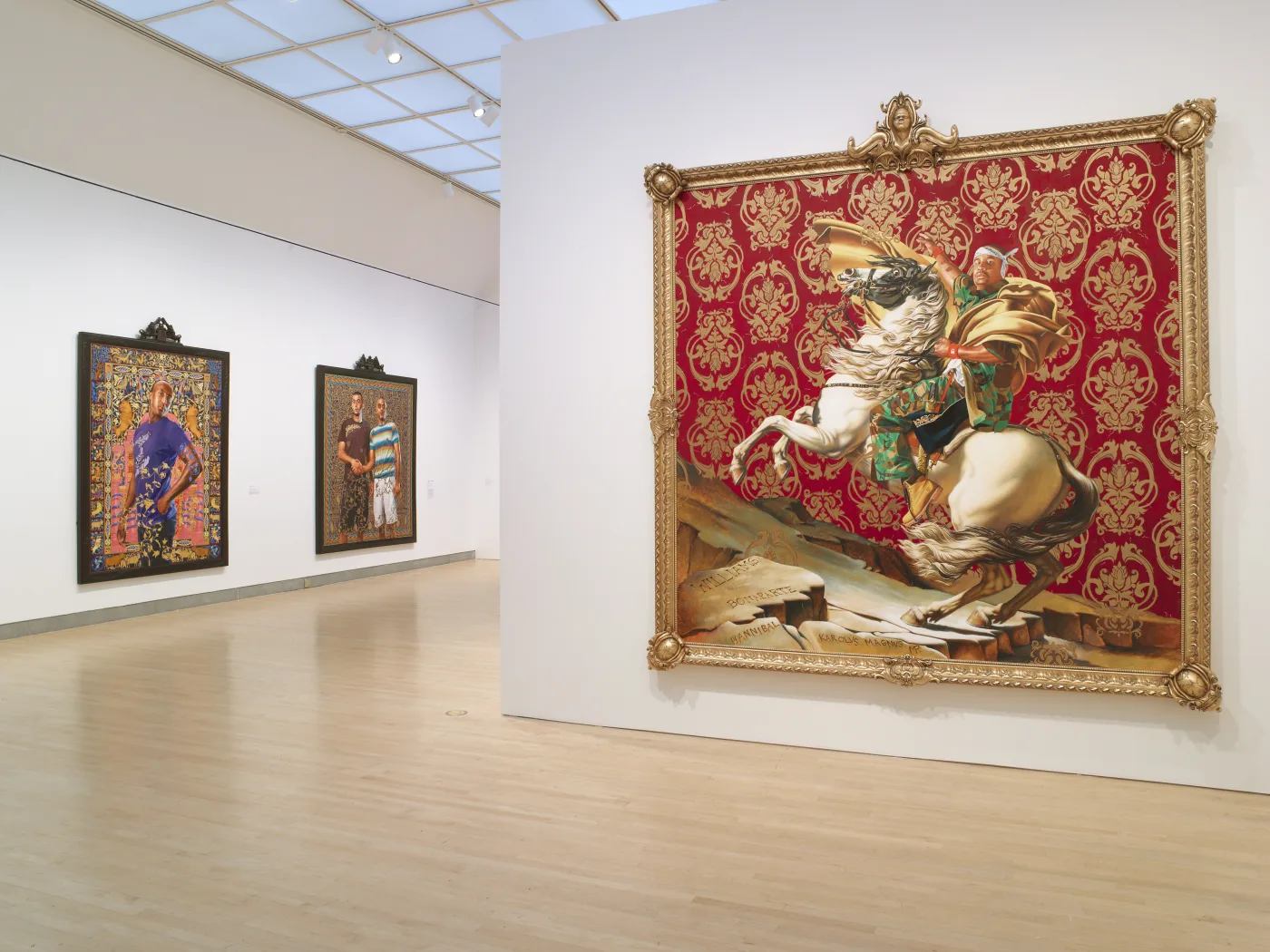Kehinde Wiley presents 'A New Republic'
The works presented in Kehinde Wiley: A New Republic raise questions about race, gender, and the politics of representation by portraying contemporary African American men and women using the conventions of traditional European portraiture. The exhibition includes an overview of the artist’s prolific fourteen-year career and features sixty paintings and sculptures.
Wiley’s signature portraits of everyday men and women riff on specific paintings by Old Masters, replacing the European aristocrats depicted in those paintings with contemporary black subjects, drawing attention to the absence of African Americans from historical and cultural narratives.
The subjects in Wiley’s paintings often wear sneakers, hoodies, and baseball caps, gear associated with hip-hop culture, and are set against contrasting ornate decorative backgrounds that evoke earlier eras and a range of cultures.
Through the process of “street casting,” Wiley invites individuals, often strangers he encounters on the street, to sit for portraits. In this collaborative process, the model chooses a reproduction of a painting from a book and reenacts the pose of the painting’s figure. By inviting the subjects to select a work of art, Wiley gives them a measure of control over the way they’re portrayed.
The exhibition includes a selection of Wiley’s World Stage paintings, begun in 2006, in which he takes his street casting process to other countries, widening the scope of his collaboration.
Kehinde Wiley: A New Republic is organized by Eugenie Tsai, John and Barbara Vogelstein Curator of Contemporary Art, Brooklyn Museum. A fully illustrated catalogue published by the Brooklyn Museum and DelMonico Books • Prestel accompanies the exhibition.
This exhibition is made possible by the Henry Luce Foundation, the National Endowment for the Arts, and Grey Goose Vodka. Additional support is provided by Sotheby’s, Ana and Lenny Gravier, Sean Kelly Gallery, Stephen Friedman Gallery, John and Amy Phelan, Roberts & Tilton, and Pamela K. and William A. Royall, Jr.


